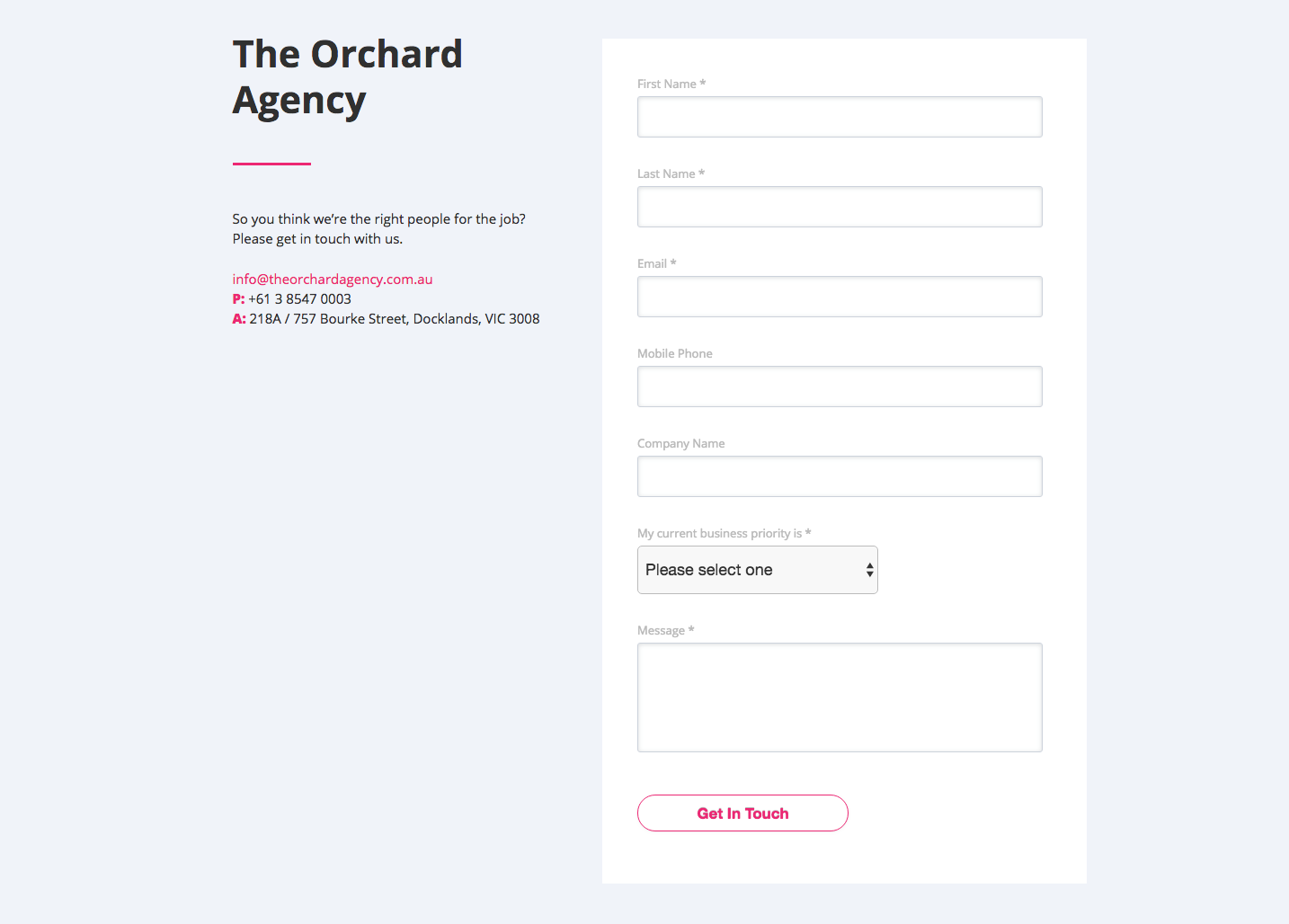Get Updated
The digital marketing realm is full of terms and lingo that can be a handful to remember!
Automation is for everyone, from the sole entrepreneur to the chief marketing officer, and everyone in between. So, it’s essential to ensure that you know what you’re talking about to get your desired results, whether that be converting prospective customers or increasing your revenue.
To give you a quick boost of marketing automation fluency, we have put together a list of 60 + terms that every marketer should know!
Marketing Automation Terms Glossary
A/B Testing
The process of comparing two versions of marketing content, typically a web page or an email, to determine which version produces better results. Most A/B testing is directed toward improving conversion rates. Also called: Split Testing
Advanced Blog Post Scheduling
There are optimal times of the day and days of the week to publish blog posts. Rather than waiting to write content at that time or just publishing whenever it’s completed, marketers can schedule blog publication in advance.
Advanced Lead Scoring
Lead scoring is the process by which a company ranks leads based on data. This gives salespeople an accurate picture of where leads are in the sales funnel as well as an idea of how to reach them in a way that maximizes their chance of conversion.
Advanced Segmentation
Leads rarely fit an identical pattern. This is why marketing campaigns are developed for specific buyer personas. Advanced segmentation enables marketers to automatically divide leads accordingly. They can then analyse specific groups of traffic data and use their insights to make better marketing decisions. While it’s important to know how many people viewed an email and clicked on links within it, it’s their activity once they’ve clicked that is most important. Marketers use after-the-click email tracking to find out more about what inspired their audience to take action.
Analytics
Analytics is the general term for data collected from websites, landing page campaigns, emails, paid Google AdWords, forms and social media. Analytics gives insight into a company’s customer personas, their behavior, and the typical customer journey. Also called: Insights
Behavioral-Based Automation
Tracking a lead’s online behavior and then using this information to automate marketing and lead generation efforts. Examples include: (1) clicking on an email that triggers a specific follow-up email, (2) visiting a page that puts a lead on a specific list, (3) completing a form that triggers delivery of a specific piece of content, etc.
Blog
Websites are typically broken up into two types of content: web pages that deliver information on the company, and blog posts that deliver engaging content on a variety of topics. Short for “web-log,” blog posts tend to be more timely and conversational in style. They also invite feedback through comments, which can be used to engage visitors and cultivate the company brand. Blogs are the original, and perhaps most important, a form of social media and can be an efficient way to attract the attention of search engines.
Branching Workflow
Branching logic is when marketers use certain pre-set conditions to trigger an automated action. Once an action is triggered, it pushes leads through workflows to the desired outcome. In its simplest form, actions are determined on a “yes” or “no” basis. If “yes” then “Action 1” happens; if “no” then “Action 2” happens. Long chains of “yes” and “no” outcomes and their associated actions are branching workflows.
Buyer Persona
A buyer persona is a hypothetical customer made up of common attributes typically seen in real buyers. Based on real data, personas reflect who customers are, what drives their behavior, and how, when and why they buy certain things. A business can have multiple buyer personas. The more detailed the personas are, the better.
Call to Action (CTA)
Calls to action are a crucial part of every marketing campaign as they let visitors, leads, and consumers know which action businesses want them to take (e.g. call now, download this white paper, fill out this form, etc.)
Click-Through Rate (CTR)
Typically presented as a percentage, the click-through rate is the metric of people visiting a web page who clicked on a link or button for a particular offer. It’s a measure of the effectiveness of an online marketing campaign, especially a pay-per-click campaign. It’s calculated as ‘clicks’ divided by ‘impressions’ equals ‘CTR.’ Also called: Click Rate, Click-Thru Rate
Contact
A contact is anyone who has been in contact with a company – by phone, email, online form, social media, and so on. Contacts are not always leads, but leads are always contacts. Also called: Prospects
Content Management System (CMS)
Content Management Systems are platforms that enable marketers to create online content for a website or a blog. They typically come with all the tools needed to create, edit, schedule, and even A/B test content. Your marketing automation platform should integrate with a variety of CMSs.
Content Marketing
A segment of the marketing function that involves the development and sharing of valuable informational material online (e.g. blog posts, articles, presentations) to a clearly defined audience. The material does not explicitly promote a product or brand but is intended to drive profitable actions by the audience.
Conversion
A conversion is when a contact goes from being a prospective lead to an actual sale, the ultimate goal of all sales and marketing efforts.
Cost Per Lead (CPL)
In an online advertising pricing model, the cost per lead is what the advertiser pays per each business or consumer that shows interest in the vendor’s offer. A lower cost per lead is desirable.
Custom Domain
A custom domain is a unique, branded name that identifies a website. They appear in the address bar at the top of every browser, and they are what we use to navigate around the web every day. It’s important for custom domains to be brief, memorable and easy to share. Also called: Vanity URL
Customer Relationship Management (CRM)
Customer Relationship Management platforms are used to collect contact information, establish sales pipelines and drive leads to conversion. Your CRM and your marketing automation platform work together. Some marketing automation platforms include a CRM, others integrate with CRMs. Ideally, a CRM system would be included within your marketing automation platform.
DKIM
DKIM stands for “Domain Keys Identified Mail” which is an encryption authentication method used by many ISPs designed to detect email spoofing. DKIM establishes whether or not the email originated from an authorized system. Then it prevents spammers from stealing the identity of legitimate entities by permitting the receiver to check that an email claiming to come from a specific domain was authorized by the owner of that domain.f
Drag-and-Drop
There are typically two types of content editor interfaces, code editors (for programmers) and WYSIWYG, which stands for ‘What You See Is What You Get.” A drag-and-drop builder is a type of WYSIWYG editor that allows you to select an object with your cursor and “drop” it in a new location. It’s an easy way for users to plug different elements into an email or landing page and see how the finished product will look. No coding experience is necessary. Your marketing automation platform should offer this type of interface.
Sending marketing information to prospects strategically over designated periods of time. This can be to nurture prospects or leads through the marketing funnel, to educate prospects, to onboard clients, to perpetuate engagement, etc. The term comes from the idea that focussed, intentional messages are being dripped methodically over time.
Dynamic Content
Landing pages and emails are typically created for one specific purpose, but the messaging and visual elements won’t necessarily resonate with every visitor all the time. Dynamic content allows a marketer to swap out areas of content (e.g. subject line, headline, image, body copy) based on the recipient/viewer — all without writing code. Swaps are made automatically by the platform based on lead attributes that you identify.
Dynamic Lists
Dynamic lists are contact lists that are created and organized based on pre-set rules. A change in a lead’s behavior can change his/ her membership on different lists. Dynamic lists allow you to generate prospect lists that can be tailored to any specific criteria. Also called: Smart List, Segment
Email Marketing
Email marketing is the targeting of consumers through electronic mail, including sending ads, requesting business, or soliciting sales or donations. It is meant to build loyalty, trust, and brand awareness. It is considered one of the most economic methods of direct marketing.
Engagement
Engagement is any interaction between a business and a lead. Also called: Lead Interaction
Filter
Filters are used to refine a set of results or actions in a marketing automation platform. These refinements are produced by a trigger, which ensures the resulting list or action is well defined.
Form
A form is a data collection tool used within websites to gather information from leads. A form may be “native” and reside within the marketing automation platform, or it may be a third-party form that comes from an outside provider. Either way, data is collected from completed forms and imported directly into the marketing automation system.

Inbound Marketing
Inbound marketing is a strategy marketers use to pull potential customers into a company’s marketing funnel. It uses social media, SEO, content marketing, events, blogs, events and more to create brand awareness and attract new business. Typically, inbound marketing includes the use of a marketing automation platform to carry out these initiatives.
IP Address
An Internet Protocol (IP) address is the unique string of numbers separated by periods that identifies each computer, printer, or other device using Internet Protocol to communicate over a network. Certain business intelligence can be gleaned from an IP address – e.g. the type of device a visitor is using, where the visitor is located generally, how often the visitor has visited a given site and how long they have stayed on a site in general or on specific pages. Reverse IP lookup is a key marketing automation feature that allows users to determine the domain name associated with an IP address.
Landing Page
A landing page is a specific web page that a visitor can visit or “land” on from a link or an ad. It is built to engage a visitor with information that is specific to the ad, to the clicked link or to a certain keyword. Its purpose is to convert. Typically, the visitor to the landing page provides information via a form in exchange for a marketing offer, such as an eBook or webinar. This page should only display content that is specific to the advertisement, search keyword, or link clicked.
Landing Page Funnel
Also referred to as a “conversion funnel,” landing page funnels are pre-determined pathways composed of different web pages, established by marketers and tracked by analytics. These funnels are tailored for conversion, and contacts are expected to complete the steps in a specific order.
Lead
A lead is a contact that has the potential to become a customer.
Lead Generation
Identifying contacts that may have interest in your product or service and attempting to pull them into your sales funnel.
Lead Nurturing
Lead nurturing is the process of managing relationships with leads that are not necessarily ready to purchase. The purpose is to win their business when they are ready to buy. A lead nurturing workflow includes automatically following up with leads, guiding them through the buyer’s journey, and finally, converting the leads into customers. Also called: Drip Marketing
Lead Score
Lead score is a key feature of a lead management system. Contacts and leads are scored based upon their actions, behaviors, engagement level over time, profile, demographics and more. Each action or behavior has an assigned point value designated by the owner of the lead management system. These point values automatically accrue as the contact progresses through the buyer’s journey. When the lead score hits an established threshold, the lead converts into a qualified lead that can be passed to sales. Also called: Score, Lead Grade
Life of the Lead
A timeline of all of the interactions between a lead and a business, including website activity, marketing communications, event attendance, and more. Also called: Lead Interaction Timeline, Activity Log
Marketing Automation Platform
Software-as-a-service that enables marketers to automate many repetitive tasks such as emailing, maintaining social media and various website interactions. It is designed to drive more leads, convert those leads to sales and prove the ROI of marketing campaigns. A marketing automation platform such as Sharpspring, Hubspot or Pardot should also have the ability to integrate with other marketing tools (CMS, CRM, meeting software, social media, etc.) to provide a single platform for centralized management and analysis.
MarTech
The collective software tools and platforms used by marketers to improve the effectiveness and efficiency of marketing and to show the return on a marketing investment. This includes, but is not limited to, marketing automation, customer relationship management (CRM) and social media measurement platforms.
Media Center
A repository that allows you to create trackable media such as videos, podcasts and sound clips that can be used in emails, automation tasks/ workflows and notifications. When leads view these media items, an event will appear on their lead interaction record (i.e. Life of a Lead), enabling you to track your leads’ interactions with important content and follow up with them in a meaningful way. Also called: Content Files, File Manager, Media Library, File Storage
Metrics
The term “metrics” refers to general statistics and performance measurements. Metrics allow firms to track lead behavior over time and create greater precision in the execution of marketing activities. They help marketers identify, target, and effectively reach leads by studying their preferences, behavior, and more.
Mobile CRM
Sometimes called mCRM, Mobile Customer Relationship Management refers to the capacity to use handheld devices to access a CRM. No longer limited to a stationary desktop computer, mobile CRM allows remote staff to manage their lead-generation efforts, sales pipelines and marketing campaigns from just about anywhere.
Mobile Optimization
Mobile optimization refers to the calibration of the pages displayed on a website so as to accommodate the device used to view it. Sometimes referred to as “responsive design,” all site pages will appear to automatically arrange themselves or simplify for optimal viewing based on a given user’s screen size and orientation.

Multiple Device Tracking
Multiple device tracking offers a continuity of visibility into the various devices used by the same lead. For example, if a user first visits the site with a desktop and then subsequently on a smartphone, the different interactions are still identified as being with that one user. In the past, these visits would have been reported as involving two different users. Since offline and online engagement are both ubiquitous and valuable, a marketing automation platform must provide this feature to be effective.
Page Tracking
Page tracking measures the number of views for each particular page on a website. It is one of a number of interactions that are measured with analytics.
Pay-Per-Click (PPC)
A type of internet advertising where a company places an advertisement on a website and pays a sum of money to the host website when a user clicks on to the advertisement. The most common example of PPC advertising is Google AdWords. A marketing automation platform will measure your PPC advertising as part of campaign analytics.
Point-and-Click Editor
A point-and-click editor is another alternative to backend coding. It works by placing the cursor on a “hot spot” or link, and clicking to activate that function. Point-and-click permits the user to install elements of code into a page without actually programming. Unlike a drag-and-drop editor, which enables users to move elements around when customizing an interface, point-and-click is a more common way to create and edit content and functionality. Most marketing automation platforms offer this technology.
Professional Services
Generally, professional services are by-the-hour services available to marketing automation users for an additional cost. These services offer help with technical tasks such as import and sync services, HTML and CSS services, automation services, development services and data restoration.
Progressive Profiling
Rather than discouraging visitor engagement by requesting too much information, progressive profiling boosts lead generation by gathering user data over time. Ideally, this is accomplished through a series of less demanding touch-points that advance the lead through the sales funnel. An alternative to progressive profiling is autocompleting forms, which gives leads the freedom to update information as their situation changes, while also relieving them of the burden of filling out forms.
Render Testing
Render testing is a form of cross-platform quality assurance for marketers who use email marketing as part of their campaigns. It offers the capacity to test emails and email campaigns for potential problems that might show up on the different email platforms and devices that recipients use (e.g. Gmail, Outlook, Apple Mail, mobile devices, etc.).
Responsive Templates
Responsive templates are pre-built sites and pages that utilize a responsive design, meaning the design is effective on all device types. The templates allow for a variety of different looks while maintaining a reliable and efficient implementation.
ROI
ROI stands for “return on investment.” The formula is: ROI = (Net Profit / Cost of Investment) x 100 and it is usually expressed as a percentage. It is one of the most important metrics for a business — it compares all investments made in marketing against the resulting conversions, i.e. sales. Marketers can prove ROI with a marketing automation platform.
RSS Email Syndication
A “Rich Site Summary” or “Real Simple Syndication” (RSS) feed is a means of automatically collecting new or recently updated content from your own site (e.g. blog posts) and syndicating it via email to subscribers.
Sales Funnel
Sales funnel (or conversion funnel) is a term used in e-commerce to describe the journey a consumer takes through marketing and nurturing until a conversion results. The metaphor of a funnel is used to describe the decrease in numbers of potential customers that occurs at each step of the process.
Sales Pipeline
A sales pipeline is a visual representation of prospects and where they are in the sales process, the final step being conversion into a sale. The term is also used to describe the process through which sales teams work to convert a lead into a paying customer. The sales pipeline is typically visually presented in a customer relationship management system (CRM).
Search Engine Optimization (SEO)
Refers to various strategies employed to ensure that a site appears high on the list of search engine results for specific terms. The purpose of SEO is to maximize web traffic. There is a distinction between paid results, i.e. Google AdWords or other programs using paid placement, and “organic” results, i.e. listings that appear on the site as a result of relevancy determined by the search engine algorithm. SEO applies only to organic results. In order for content to be found by users online, it needs to be optimized for search. Most marketing automation platforms incorporate blog SEO analysis and recommendations to assist marketers in optimizing content.
Segmentation
The process of separating your target audience into groups that act similarly. Messaging will ideally be tailored to specific segments in a way that reflects their specific experiences or interests. In a marketing automation platform, these segments can be turned into lists and then used to send targeted messages.
Site Visitor
A site visitor is anyone who lands on a website. Typically they are anonymous, and an IP lookup is required to determine who they are, what sites they have come from, and numerous other behaviors and traits. Reverse IP lookups typically work only on businesses as opposed to individual visitors. Analysis of a site visitor can be used to suggest specific site options or content.
Social Media
Social media websites and applications allow users to create and share content or to participate in social networking. Blogs were the first form of social media, but in recent years, most social media applications tend to exist within the context of a proprietary platform. Facebook, Twitter, LinkedIn, Instagram, and Snapchat are examples of social media. A key feature of a marketing automation platform is its ability to integrate with social media.

Social Media Conversions
Social media conversion refers to social media visitors who are guided towards the sales funnel and ultimately become sales.
Social Media Engagement
Social media engagement usually refers to any kind of interaction by a visitor with a brand’s social media profiles. A “like” on Facebook or a “retweet” on Twitter are examples of this type of interaction.
Social Media Monitoring
Social media monitoring is the tracking of social media for information about an individual, organization or business. Marketing automation platforms integrate all monitored social media accounts into one dashboard for easier management.
Social Media Profiling
A social media profile is a description of an individual’s social characteristics as identified through social media sites such as LinkedIn and Facebook. As with brand personas, social media profiling enables marketers to create better targeted messaging and also to connect with thought leaders and online communities.
Social Media Publishing
Social media publishing is any form, new or emerging, of online content creation that allows for interactions such as sharing, likes, comments, etc.
Split Testing
See: A/B Testing
Third-Party Postback
Marketers using a third party data-collection tool (like a CRM) outside their marketing automation platform can use postback URLs to direct any information collected on their site to that third party. Postbacks are visible on URLs in shopping carts and other e-commerce transactions with an embedded code such as “id=”. The id tells the site what information to share and where to send it.
Time-Based Automation
Time-based automation, also known as “time-based event automation,” enables an action based on a pre-set schedule or a delayed delivery after a lead completes a specific task. For the marketer, the automation of recurring tasks produces increased efficiency and usability.
Trigger
A trigger initiates an action or series of actions with a lead, typically after the lead has engaged in specific behaviors. Also called: Automation Rules, Workflow Starting Condition, Program Feeder

Workflow
A sequence of emails sent using automation. Also called: Program, Automation Program
WYSIWYG
WYSIWYG stands for “what you see is what you get” and refers to the interface of a text editor. Drag-and-drop and point-and-click editors are alternative forms of WYSIWYG. The alternative would be an HTML editor, which requires in-line coding.
Download our free Marketing Automation Terms Guide
The digital marketing realm is ever-changing, so we hope this helped you get up to speed.
Download our free Marketing Automation Terms Guide, and the next time you come across a marketing automation term you’re not sure of, you’ll know exactly where to look!


